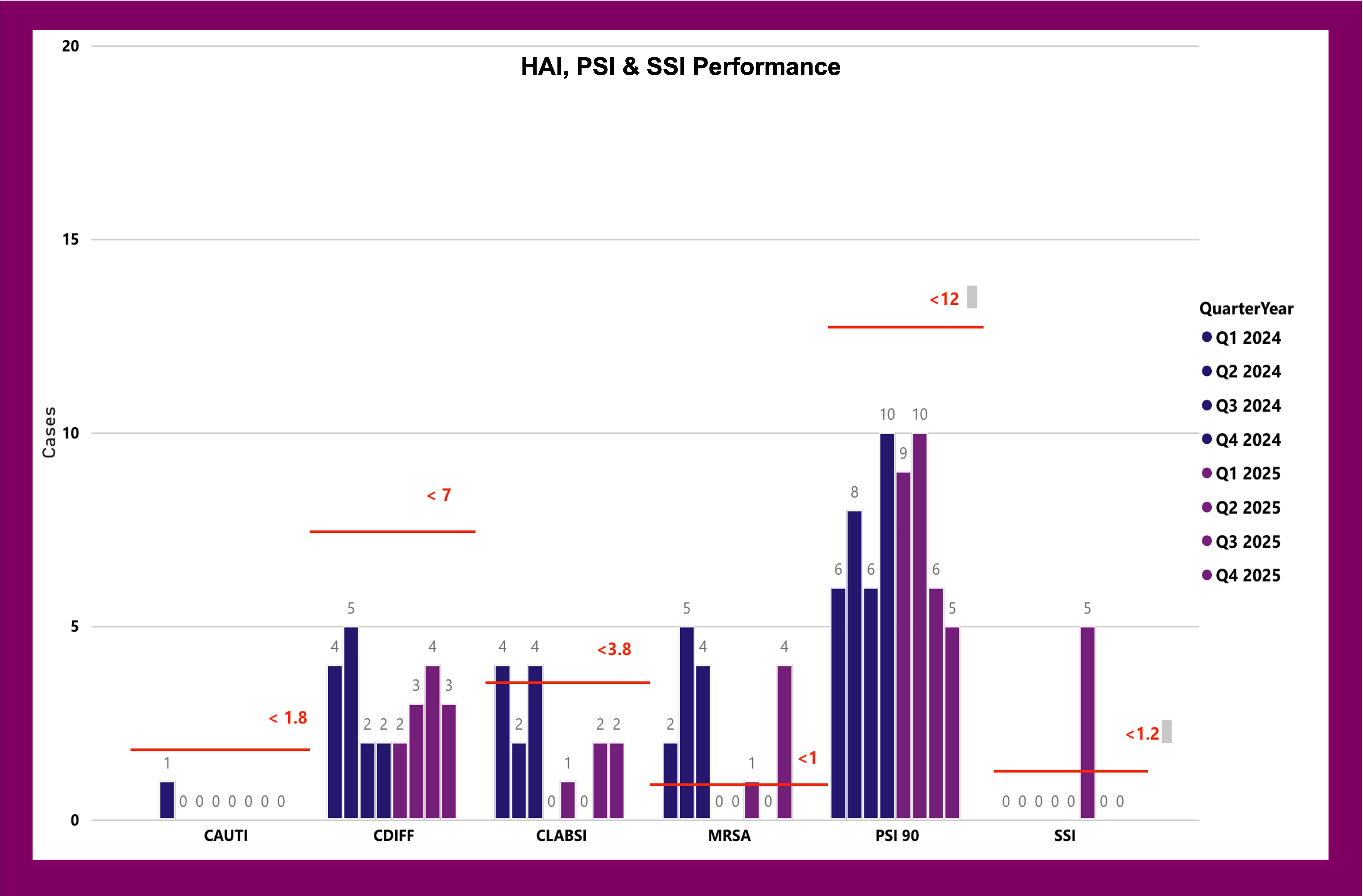
Patient Safety Metrics
How We’re Keeping You Safe
At Mary Washington Healthcare, your safety is our top priority. We believe no one should be hurt while getting care. That’s why we have a big goal: zero preventable harm to our patients.
To reach that goal, we work hard every day to make care safer. We check our work, learn from mistakes, and always look for ways to improve.
We also believe you deserve to see how we’re doing. Our patient safety results show how we’re performing on key safety measures—like preventing infections and surgical complications.
We’re proud of the progress we’ve made, and we’re not stopping until we reach zero.
The data below reflects both Mary Washington and Stafford Hospitals.

Published January 19, 2026
Understanding Hospital Metrics
CLABSI
CLABSI stands for Central Line-Associated Bloodstream Infection. This occurs when harmful germs enter the bloodstream through a tube placed in a large vein. It can lead to severe illness and may require serious medical treatment.
MRSA
MRSA stands for Methicillin-Resistant Staphylococcus Aureus. It is a type of bacteria that is resistant to many antibiotics, making it difficult to treat. MRSA can cause infections on the skin and other parts of the body and can be very dangerous if not treated properly.
CDIFF
CDIFF stands for Clostridioides difficile. This bacterium can cause severe diarrhea and other intestinal problems, often after someone has taken antibiotics. It can spread easily in hospitals and nursing homes.
SSI Colon/Hyst
SSI stands for Surgical Site Infection. 'Colon' refers to surgery on the large intestine, and 'Hyst' refers to surgery on the uterus. These infections happen when germs infect the area where surgery was performed, causing pain and other complications.
CAUTI
CAUTI stands for Catheter-Associated Urinary Tract Infection. This happens when germs enter the urinary tract through a catheter, a tube used to help someone urinate. It can cause pain, fever, and other serious symptoms.
PSI-90
PSI-90 stands for Patient Safety Indicator 90. This is a set of safety measures that show how well hospitals are protecting their patients from problems such as infections, falls, and other complications. Hospitals aim to keep their PSI-90 numbers low to show they are providing safe care.
